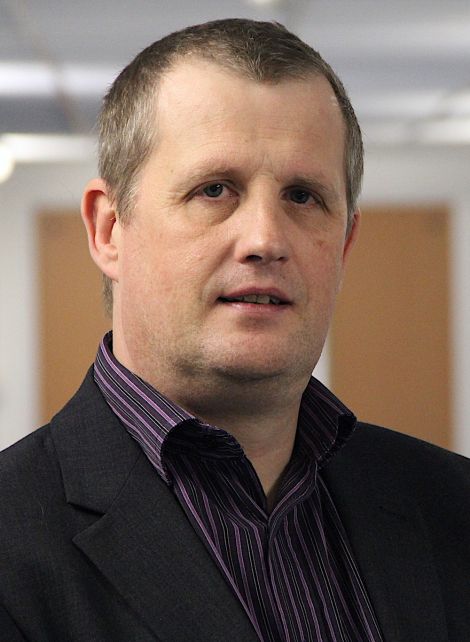News / Island health needs heard by parliament committee
VASTLY improved internet speeds are needed before the NHS in Shetland can deliver a core part of its rapidly evolving service to rural communities, health chiefs told a Scottish Parliament committee today.
It is remote islands like Unst, Yell and Fetlar that can benefit most from this new direction in health care, but which are the worst served by broadband needed to implement it, according to NHS Shetland chief executive Ralph Roberts.
Speaking after the Health and Sport Committee hearing, he said that budgets and the patient experience can both benefit from video-linked assessments which will cut the need for expensive and arduous travel for frequently elderly and frail patients who may need to be escorted.
The committee, he said, had been receptive to the differences between the islands and mainland health care needs, and of those within Orkney, Shetland and the Western Isles.
Tele-health is just one strand of change needed in an NHS facing financial and recruitment pressures and an ageing patient demographic most prevalent in isolated rural communities.
Roberts said: “Broadband coverage is absolutely essential,” and emphasised it was needed most urgently in precisely those areas where it is worst.
A paper by director of community health and social care, Simon Bokor-Ingram, which formed part of the agenda, says: “There is an emphasis on the e’Health agenda, and the focus on technology being used as an enabler to avoid patients, and their families, having to travel unnecessarily for appointments or treatment and in providing appropriate specialist advice to staff across Shetland.
“This needs to be underpinned by robust infrastructure and we are already working across agencies in Shetland to make the case for further investment, where there is a gap in provision.”
Roberts added that significant improvements were already being made with 1,400 tele-health appointments made last year compared with only 600 in 2016.
Become a member of Shetland News
One example of tele-health in action is orthopaedic assessments done over the internet with specialists in Glasgow. Patients might still have to travel to Aberdeen for a conclusive MRI scan, but on average, trips away for the like of a hip replacement are being reduced from five to two, a big consideration for patient welfare and cost.
More locally, video links with software like Attend Anywhere can mean patients in Unst being assessed at the health centre, or even at home, by specialists at the Gilbert Bain in Lerwick.
A range of hardware devices can monitor elderly people in their own homes, enabling care at home, instead of in expensive to run centres.
There is also greater emphasis on pre-operative assessments being undertaken in Lerwick with the results being send south to operating centres.
Roberts said that while many details still have to be decided, the move from hospital to home care and preventative rather than curative medicine was gathering momentum and there was a need for the pace of change to accelerate.
Become a member of Shetland News
Shetland News is asking its many readers to consider paying for membership to get additional features and services: -
- Remove non-local ads;
- Bookmark posts to read later;
- Exclusive curated weekly newsletter;
- Hide membership messages;
- Comments open for discussion.
If you appreciate what we do and feel strongly about impartial local journalism, then please become a member of Shetland News by either making a single payment, or setting up a monthly, quarterly or yearly subscription.





























































